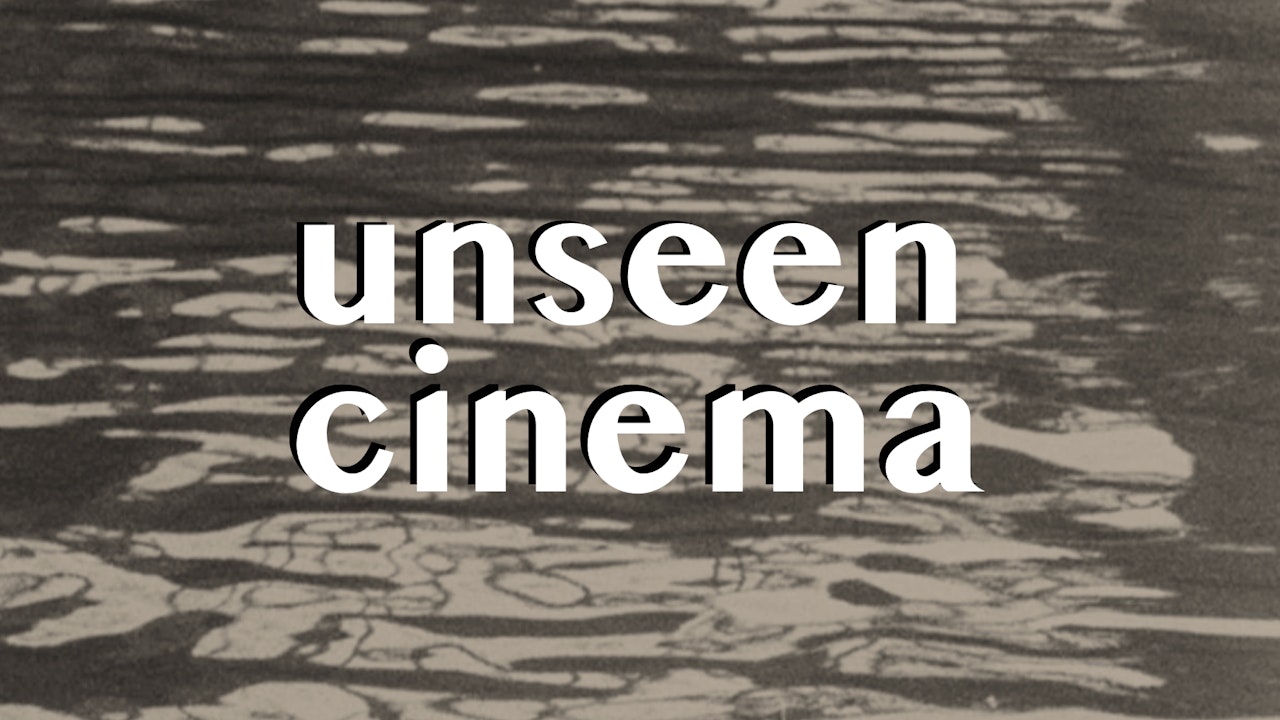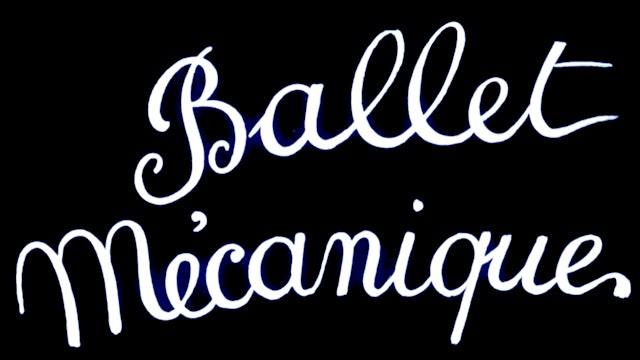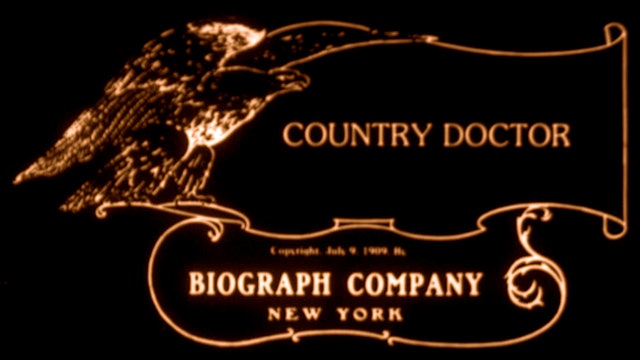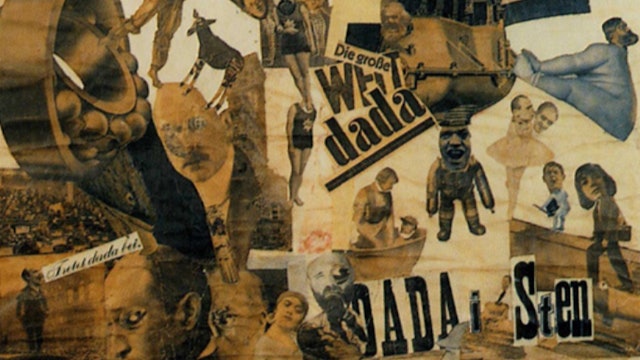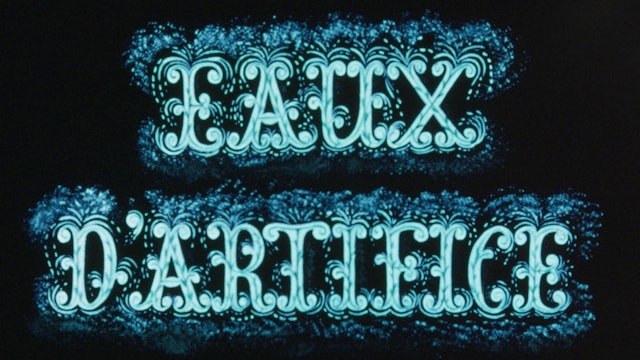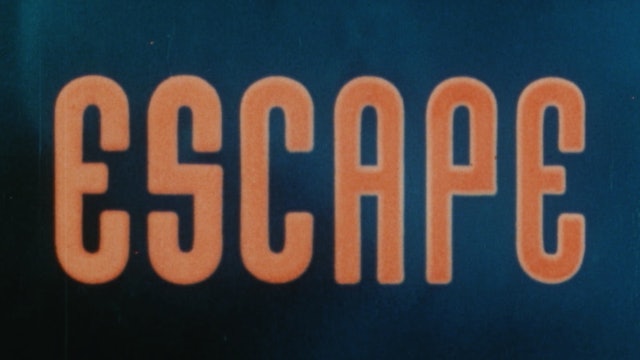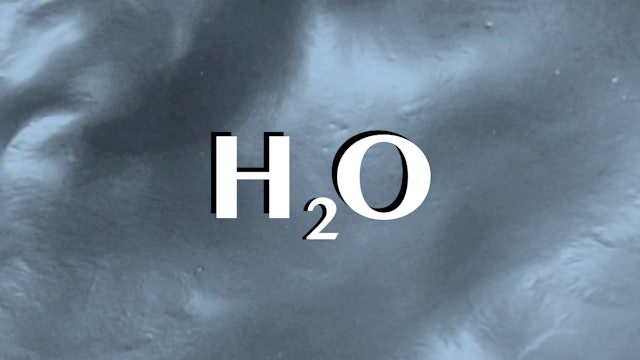-
ABSTRONIC
"Beautiful Lissajous curves [curved lines that pass through a pair of harmonic motions in perpendicular directions] can be put through a choreography that inspires—and startles—the imagination," writes Mary Ellen Bute of her quest to visualize invisible rhythms. In ABSTRONIC, she uses a cathode r...
-
AMERICA TODAY
The stark compilation of newsreels entitled AMERICA TODAY represents a key work in the origins of American social documentary film. Under the direction of Leo Hurwitz, the images—primarily photographed by Leo Seltzer between 1932 and 1934—are edited to create a powerful record of a country in nee...
-
ANÉMIC CINÉMA
Thought-provoking and offensive are possible ways to interpret the ten optical discs and corresponding puns displayed in the film. The word play of French syllogisms gleefully collides with the protruding-receding optical illusions of the rotating spheres. Julien Levy called the film SPIRALS and ...
-
BALLET MÉCANIQUE
Fernand Léger's BALLET MÉCANIQUE occupies a preeminent place in modern art. There is no other film quite like it. One reason is the collective effort of the Americans who participated in its creation, including Ezra Pound, Alvin Langdon Colburn, Man Ray and especially co-director Dudley Murphy an...
-
COLOR RHAPSODIE
Produced by a pioneer film designer to create moods through the eye as music creates moods through the ear. Do you see anything like this when seeing sound?
"[Mary Ellen] Bute transcends her influences; her visual imaginations triumphs. I like the romantic flair of COLOR RHAPSODIE, its visual de...
-
THE CONQUERING CROSS
Never completed by famed Russian director Sergei Eisenstein, the footage for his proposed feature QUÉ VIVA MÉXICO! was financed and preserved by husband-and-wife team Mary and Upton Sinclair. A series of Filmosound travelogues were constructed later by film editors William Kruse and Egon Mauthner...
-
THE COUNTRY DOCTOR
A doctor in a small town leaves his ill daughter to attend to another patient. His wife seeks his return before the health of the condition of their daughter deteriorates.
"The subject is one of impressive realism and sure to strike deep into the hearts of the spectators." — Biograph Films adver...
-
DANCE OF THE HEADS
Sergei Eisenstein's ill-fated trip to Hollywood and then Mexico influenced many American film enthusiasts. Of all the beautiful images captured by Eisenstein in Mexico, some of the most fascinating involved rituals and dance. In the DANCE OF THE HEADS excerpt, dancers are portrayed in ecstasy. — ...
-
DAY OF THE DEAD
Sergei Eisenstein's ill-fated trip to Hollywood and then Mexico influenced many American film enthusiasts. Of all the beautiful images captured by Eisenstein in Mexico, some of the most fascinating involved rituals and dance. The DAY OF THE DEAD images mix masks with machine movements. — Bruce Po...
-
EAUX D'ARTIFICE
The Villa d'Este sculpture gardens frame the nocturnal exploits of a Baroquely-dressed masked figure darting about a waterworks of gushing fountains. Jets of water form a mesmerizing erotic fantasy paying homage to abstract visual music, early silent cinema and Sergei Eisenstein's spectacular "cr...
-
THE ECLIPSE
Arguably the most celebrated "found footage" film in existence, Joseph Cornell found a second-hand 16mm print of the early-1930s Pre-Code adventure epic EAST OF BORNEO and re-edited the footage to showcase the splendor of its star, Rose Hobart. Slowed to 18fps and commingled with documentary mate...
-
ESCAPE
Based upon mathematical calculations proposed by Joseph Schillinger and meticulously drawn-out by Mary Ellen Bute on animation cels, ESCAPE [SYNCHROMY NO.4] reveals Johann Sebastian Bach's TOCCATA (transcribed by Leopold Stokowski from the TOCCATA AND FUGUE IN D MINOR) as a series of pulsating li...
-
THE FILM THAT RISES TO THE SURFACE OF CLARIFIED BUTTER
"I wanted to do a film which dealt with drawings which somehow had a life of their own, which existed in the same space as real objects and yet still had their own two-dimensional space... imagery that didn't refer to anything in our visual vocabulary, and also was so non-objective that it didn't...
-
FOUR IN THE AFTERNOON
Four short films adapted from the poetry of James Broughton: GAME LITTLE GLADYS; THE GARDENER'S SON; PRINCESS PRINTEMPS; and THE AGING BALLETOMANE. Delightful and sentimental, the interludes recall silent cinema, full of playful mime and dreamy reverie. As such, the vignettes offer a welcome anti...
-
H2O
"H2O depicts water under a variety of forms, increasingly focusing on its ability to create a multileveled reality of surface and reflection. Ultimately, the film reduces a phantasmagoria of light and shadow that render its simple title almost ludicrous." — Scott MacDonald
Featuring a score comp...
-
HANDS
HANDS is an ingenious piece of propaganda that communicated not only through its content but through the very unconventionality of its "experimental structure." The film suggests that the government that produced it is imaginative and inventive, open to new possibilities and supportive of forms o...
-
THE HEARTS OF AGE
"It's nothing at all. Absolutely nothing. It was a joke. I wanted to make a parody of Jean Cocteau's first film [THE BLOOD OF A POET]. That's all. We shot it in two hours, for fun, on Sunday afternoon. It has no sort of meaning." - Orson Welles
-
THE HOUSE WITH CLOSED SHUTTERS
Photographed at Biograph's New York studio and in Fort Lee, New Jersey, from 25-June to 2-July and released 11-August, 1910, this is D.W. Griffith's two-hundred-forty-fourth film and of eighty-six he directed that year. It is daring in its attempt to cover many years in only one reel and shows sk...
-
IDOL OF HOPE
Never completed by famed Russian director Sergei Eisenstein, the footage for his proposed feature QUÉ VIVA MÉXICO! was financed and preserved by husband-and-wife team Mary and Upton Sinclair. A series of Filmosound travelogues were constructed later by film editors William Kruse and Egon Mauthner...
-
INTROSPECTION
Sara Kathryn Arledge's loosely-connected technical and aesthetic experiments utilize dance in an effort to portray "time in art." The intent was to create a dance that could only be shown on film, a choreography uniquely different from any devised for the stage and one that emerged solely from th...
-
THE LIFE AND DEATH OF 9413: A HOLLYWOOD EXTRA
A collaboration between French-born screenwriter / filmmaker Robert Florey (née Robert Gustave Fuchs), a former assistant of Louis Feuillade, and Serbian-born cinematographer / filmmaker Slavko Vorkapich (née Slavoljub Vorkapić), THE LIFE AND DEATH OF 9413 concerns the plight of a young actor in ...
-
LOOK PARK
LOOK PARK presents close-up shots of a country stream viewed in bright sunlight. The film opens with wide shots of the park to establish the location, then focuses on the abstract selections and shadows. The music—initially a piece by Jacques Offenbach which segues midway into an electronic recor...
-
THE LOVE OF ZERO
Robert Florey, a French cineaste, and William Cameron Menzies, a top art director, combined talents to show the influence of THE CABINET OF DR. CALIGARI (1920) and other European film experiments which tended to be ignored by Hollywood productions. Florey went on to make the the expressionistic M...


